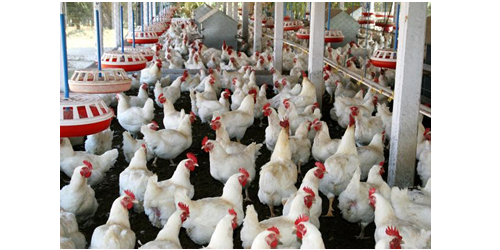VEPAG Pleased With Lift of Ban on Vegetable Export

President of the Vegetable Exporters and Producers Association of Ghana (VEPAG) Mr. Joseph Tontoh has expressed relief at the lift of the ban on vegetable export from Ghana to the European market.
According to him, vegetable farmers across the country had endured hardships over the last three years that the ban had been in place.
As from 1st January 2018, Ghanaian farmers will be able to resume exports of all plant commodities to the European Union (EU) market.
This follows the European Commission’s decision to lift the current ban on the exports of five plant commodities from Ghana to the European Union (EU) market on 31st October 2017, according to a statement from the EU.
The five Ghanaian plants (chilli pepper, bottle gourds, luffa gourds, bitter gourds and eggplants) will from 1 January 2018, have duty-free and quota-free access to the EU market like any other product from Ghana.
This revelation has sparked excitement from the president of the association, Mr. Joseph Tontoh.
“The association couldn’t hide its joy when we heard of the lifting of the ban on vegetable export to the European market,” an elated Mr. Tontoh told ritefmonline.org. “We are mainly vegetable farmers and have given much priority to that job but have for three years now endured so much hardships and difficulties which have dwindled our business as vegetable farmers,” he said.
Role of MoFA and Stakeholders and Way Forward
The 2005 national best chilli farmer extolled the efforts and steps taken by the Ministry of Food and Agriculture and other stakeholders which have ultimately led to the success story.
Mr. Tontoh expressed confidence at the prospects of the new policy ensuring the cultivation, harvesting and storage of vegetables which he described as “laudable” and which, he insists will enhance the production of quality vegetables not just for export but also for local consumption.”
He added that, “there are a lot of people out there who are not farmers or exporters but are just serving as agents who don’t follow the laid down procedures and must be dealt with,” the vegetable president charged.
The ban lift, he said, will thus bring relief to farmers.
On the way forward to ensure that such ‘misfortune’ doesn’t befall the country again, Mr. Joseph Tontoh gave a strong assurance that the association is engaging in many training activities for their members and will continue to train them regularly to keep them on track since they know the difficulties they have been going through during the ban on the vegetable export.
Ban
From 2012 to 2015, the number of intercepted plants from Ghana at the EU borders due to the presence of harmful organisms had increased significantly, leading Ghana to face the highest number of interceptions globally in 2015.
On 13 October, 2015, the European Commission decided to prohibit the introduction of 5 plant commodities from Ghana into the EU market until end of December 2016.
The ban was purposely restricted to those commodities that have had the highest number of interceptions.
The five concerned plants were chilli pepper, bottle gourds, luffa gourds, bitter gourds and eggplants. Following an audit undertaken in September 2015, decision was taken by the European Commission to renew the ban by one year until December 2017.
Over the past years, the Plant protection and Regulatory Service Department (PPRSD) of the Ministry of Food and Agriculture has received support from several development partners to improve the inspection and control system at the airport, to improve traceability as well as to develop and start the Ghana Green Label Scheme.
Source: Austin Ofori Addo/ritefmonline.org/austinofori.addo@gmail.com




